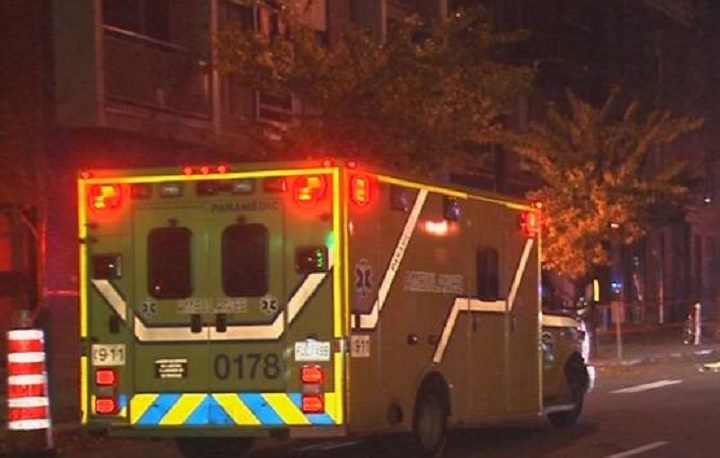A Quebec coroner says the death of a young man who waited 21 minutes for an ambulance could have possibly been avoided had help arrived sooner.

Hugo St-Onge, a 24-year-old paramedic, died in December 2017 after developing convulsions at his girlfriend’s house in Levis, just south of Quebec City.
His girlfriend called 911, but St-Onge had to wait 17 minutes for fire trucks to arrive and 21 minutes for an ambulance, even though the call was classified a top priority.
In her report published today, Coroner Julie Langlois said although the death was natural and due to a heart problem, it could have possibly been avoided.

Get weekly health news
READ MORE: COVID-19: Red Cross staffing lower than expected in Quebec long-term care homes
She notes all three of Levis’ ambulances were occupied when the 911 call was made, forcing paramedics to be summoned from another territory.
She recommends regional and provincial health authorities work together to review their emergency response resources to help avoid the problem in the future.
In her report, she says it was possible the lack of ambulance service played “an important role in the fate of Mr. St-Onge.”
“For each minute of delay in starting resuscitation manoeuvres, survival is reduced by 7-to-10 per cent,” she wrote.
North American standards recommend a delay of no more than eight-to-10 minutes in cases of cardiorespiratory arrest, the corner notes, adding chances of survival are slim after 15 minutes.
She says St-Onge had signed a letter criticizing the lack of ambulance resources one month before his death.
Langlois also recommends the 911 call centre be better integrated with ambulance dispatch. In the meantime, she says, emergency vehicle drivers should be equipped with GPS-enabled cellphones so they can be tracked more quickly.
St-Onge’s doctors should also review their actions to ensure they provided him with adequate tests and treatment for his heart problem, she says.







Comments